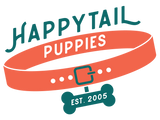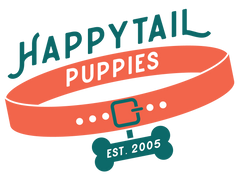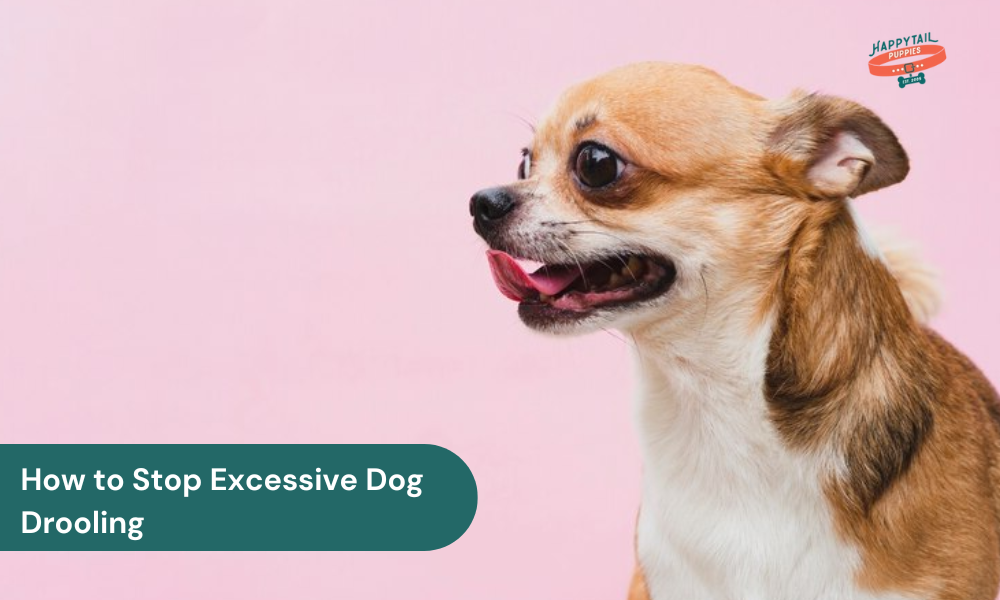How to Stop Excessive Dog Drooling?
Excessive drooling in dogs can signal anything from normal breed traits to serious health concerns. Learn the causes, symptoms, and best ways to manage it effectively.
Being a dog owner, you might often find your dog drooling excessively. You should never overlook this, as it might indicate an underlying health issue. But, whenever drooling starts happening regularly then it is important to take the necessary preventative measures. Before trying anything, you should first identify the real reason for dogs drooling excessively and how essential it is to manage this kind of behavior. Excessive drooling might happen due to reasons ranging from general triggers to medical concerns. In our post today, we are going to explore the real causes behind it and offer the best solutions to stop or manage excessive drooling in dogs.
Understanding Excessive Dog Drooling
Dog drooling is a typical part of dogs' natural bodily functions. Saliva aids in proper digestion, lubricates the mouth, and even cools the body whenever necessary. However, excessive drooling happens when something goes amiss. For individuals raising puppies in Virginia, identifying excessive drooling is important due to the varied climate that influences their comfort and health. Several environmental factors, along with the region's potential allergens and local flora contribute to your pup's excessive drooling that needs proper attention. Knowing what qualifies as excessive drooling is the initial step to managing this prevailing condition.
Drooling excessively refers to saliva production that is more than normal. It often means that saliva constantly drips or that your dog needs frequent mouth wiping. Although a few dogs drool more frequently, an unexpected increase in this condition might indicate a health issue. For example, Boston Terriers drool more frequently than other breeds due to their short muzzles, which impact their ability to swallow saliva efficiently.
Common Causes of Excessive Dog Drooling
Different factors lead to excessive drooling that might arise due to common triggers or any severe medical conditions. Knowing the cause is important to determine the best way to address this issue, removing any discomfort for your dog, mainly for the puppies in Florida, where environmental factors such as humidity and heat play a notable role.
Dental Issues
Dental issues are the most notable reasons behind your dog’s excessive drooling. Cavities, broken teeth, gum diseases, and even abscesses are common sufferings for dogs. This leads to the greater production of saliva. If your dog is experiencing any mouth pain due to considerable dental issues, then drooling can have a comforting effect on your furry companion.
Nausea
Nausea is yet another common reason behind excessive drooling in dogs. Similar to humans, even dogs feel nauseous due to different reasons like gastrointestinal upset, motion sickness or consuming anything toxic. It is mainly common in breeds such as French Bulldogs, who are prone to gastrointestinal issues.
Anxiety or Stress
Both stress and anxiety contribute to excessive drooling. Dogs are often prone to their environment, and changes to their routine; separation from owners or loud noises causes anxiety. Dogs often drool excessively whenever they are anxious as a fight-or-flight response.
Heat Stroke
Dogs with thick or dense coats or those living in warmer climate zones are often prone to face risks of heat strokes. Whenever your pup starts overheating, it starts drooling excessively. This is their generic way to cool down their bodies. However, heatstrokes are an extremely serious condition, and immediate attention is a must for every dog owner.
Poisoning or Toxicity
Another major cause of your dog's excessive drooling is exposure to toxic elements. Pups tend to ingest hazardous chemicals, toxic plants, and even food items, which leads to their drooling. However, poisoning often happens when they accidentally ingest chocolate, grapes, or household cleaners.
Foreign Objects in the Mouth
Dogs might even drool excessively if, by accident, any foreign object gets stuck in their digestive tract, mouth, or throat. Substances like toys, bones, or sticks might often get stuck, leading to further irritation or blockages.
Breeds Prone to Drooling
A couple of dog breeds are natural droolers, mainly Bulldogs and Pugs. This is their natural tendency. Since these dogs have loose elastic skin around their mouths, this leads to greater drool production.

How to Stop Excessive Dog Drooling
Identifying the real causes behind your dog’s excessive drooling behavior proves effective. Watch out for any sort of dental issues, health problems, or even anxiety. Making small tweaks to their lifestyle and applying certain remedies can address this condition in your dog. So, let us find out how to reduce or stop your dog from drooling excessively and get medical attention whenever it implies a must.
Maintain Oral Health
Routine oral care notably reduces drooling due to dental issues. Try getting toothpaste made specifically for dogs and brushing your dog’s teeth with it. Dental chews and toys are also made to keep your dog's teeth clean and healthy. Furthermore, schedule annual or semi-annual dental inspections, as this is the perfect way to address the underlying issues.
If you suspect any dental issues in your dog, take prompt action to head out for a vet checkup. Proper routine dental care proves effective in preventing any sort of dental issues in dogs. Also, follow proper routines to brush their teeth and offer dental chews to promote your dog’s overall oral hygiene, preventing excessive drooling out of dental disorders.
Address Nausea and Upset Stomach
Excessive drooling can often occur due to nausea or an upset stomach, so it is important to take preventative measures. Ensure that your dog is not consuming anything toxic to its health. Offer your pup a bland diet, as it will comfort its digestive system. However, if your dog constantly experiences nausea, be sure to consult your vet to choose the right treatment options to reduce discomfort in its stomach.
Also, focus on the other signs of nausea, like drooling, licking lips, swallowing excessively, or even retching. If you find your dog nauseous, then ensure to visit a vet for health screening and possible treatment.
Reduce Anxiety and Stress
Offering your dog a calm space can help manage anxiety-related drooling. Ensure that your dog uses calm pheromone diffusers or even sprays to help calm down its stress. Anxiety-reducing products such as soothing supplements or anxiety vests also prove effective.
If you find, your dog drools excessively during distinctive events like vet visitations or thunderstorms, mainly due to stress. Stress reduction and offering soothing strategies can help in the management of this form of drooling. One of the most potential ways is to use positive reinforcement to reward their calm behavior during stressful situations. It eventually helps your pups to associate previously stressful situations with positive outcomes.
Prevent Heatstroke
To prevent heatstroke in your dog, always ensure that your dog has access to sufficient water and shade, especially during the warmer months. Never leave your dog all by themselves in cars, even for a short while when the temperature tends to increase at a rapid pace. During the hot climates, refrain from offering dogs high levels of exercise.
Try giving them meals in small portions or using slow-feeder bowls to prevent your dog from eating fast. However, if you find your dog has ingested anything toxic, then get in touch with your vet promptly. These professionals will help in bringing your dogs under control, or more often, you may have to visit a vet hospital for additional treatments.
However, if you see any signs of heatstroke in them, like excessive drooling, lethargy, or rapid breathing, then immediately take measures to cool your dog.
Manage Poisoning or Toxicity
If you suspect that your dog has ingested anything toxic, then immediate action is required. Connect to your vet or an emergency animal poison hotline for expert help. Your vet might give your dog some substances inducing vomiting, offer treatment for neutralizing the toxins or administer activated charcoal.
Also, keep the harmful substances, including the chemicals and foods, out of reach, preventing accidental toxicity. Knowing about the common toxins can help in avoiding conditions leading to excessive drooling and other symptoms related to poisoning.
Remove Foreign Objects Promptly
Suppose there is something stuck in your dog's mouth or throat, then refrain from removing it on your own unless you are certain that it is safe. Take your dog to your vet for the appropriate screening and removal. Any foreign objects would lead to significant damage to their throat or mouth when handled incorrectly.
If you find your dog in this condition, inspect it thoroughly and contact a vet for further help. Never try removing the object with your hands unless you have the knowledge to do so safely and correctly.
Know Your Dog’s Breed
If you own a dog breed that drools excessively, you should accept that it is normal behavior. However, you should also monitor for signs of discomfort or illness. If the drooling increases suddenly or becomes serious, always consult a vet to rule out any health issues.
However, regardless of the breed you choose, it is extremely important to monitor their health closely to ensure that the reason for their drooling is not medical.
Conclusion
Excessive drooling in dogs is often frustrating for owners; however, knowing the possible causes behind this condition or how to manage it effectively can make a huge difference. There are several ways to manage excessive drooling in dogs effectively, and following them can help prevent this issue. Also, monitor for behavioral changes or consult with your vet if you find any persistent problems. The right care and attention can help your dog remain healthy and comfortable.


